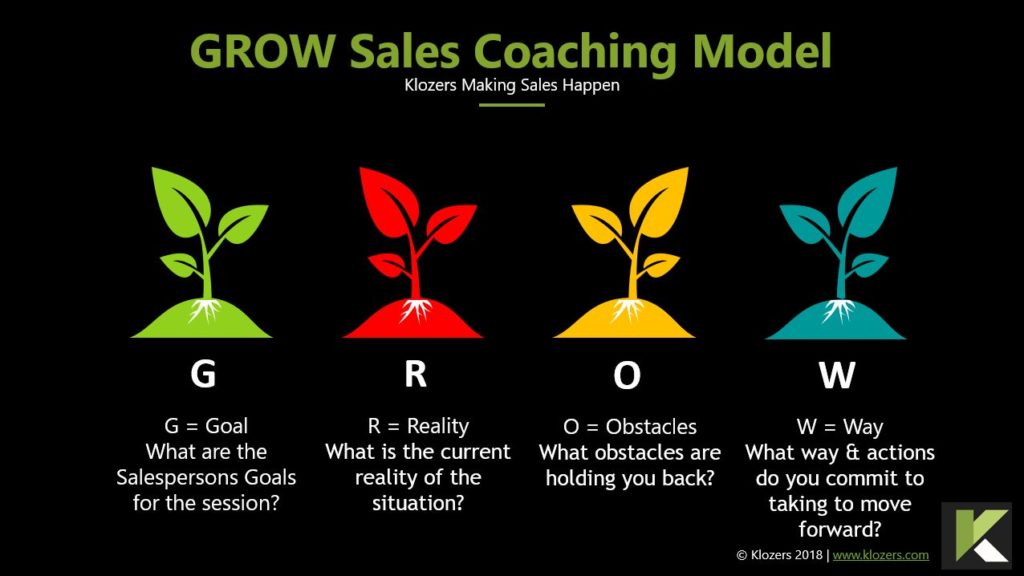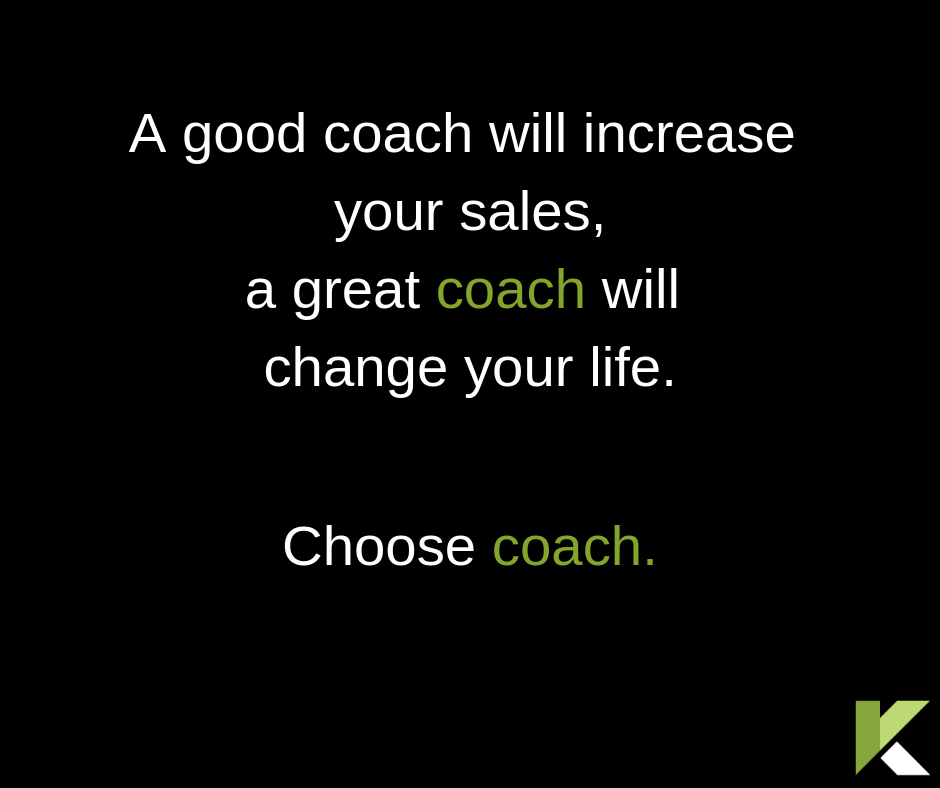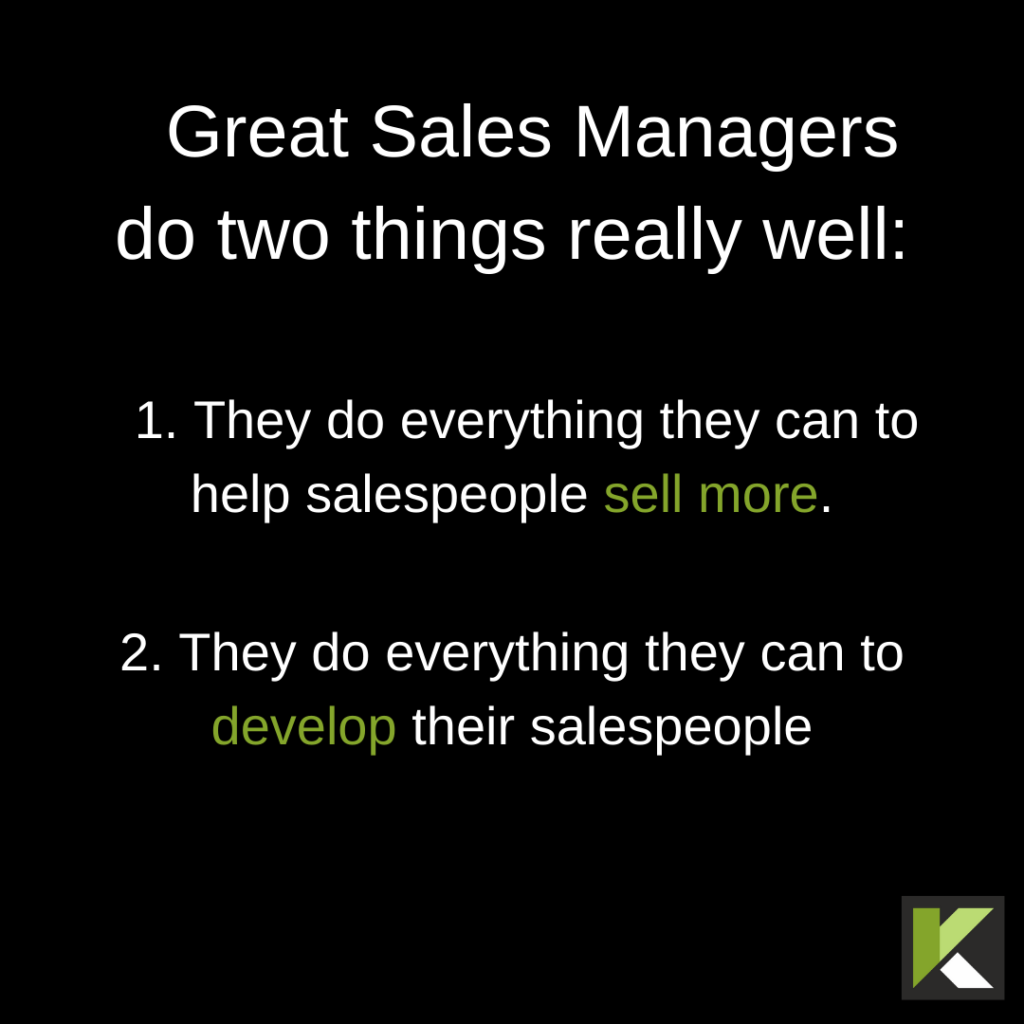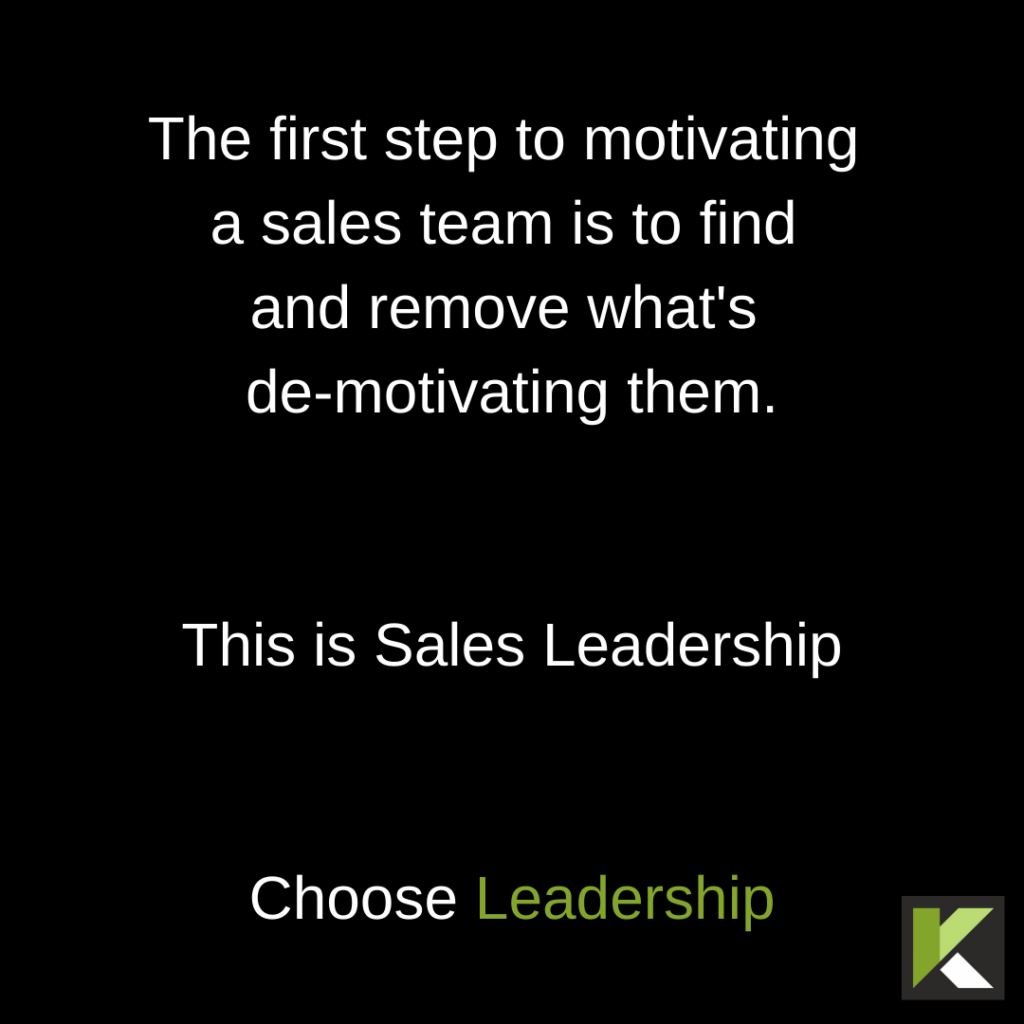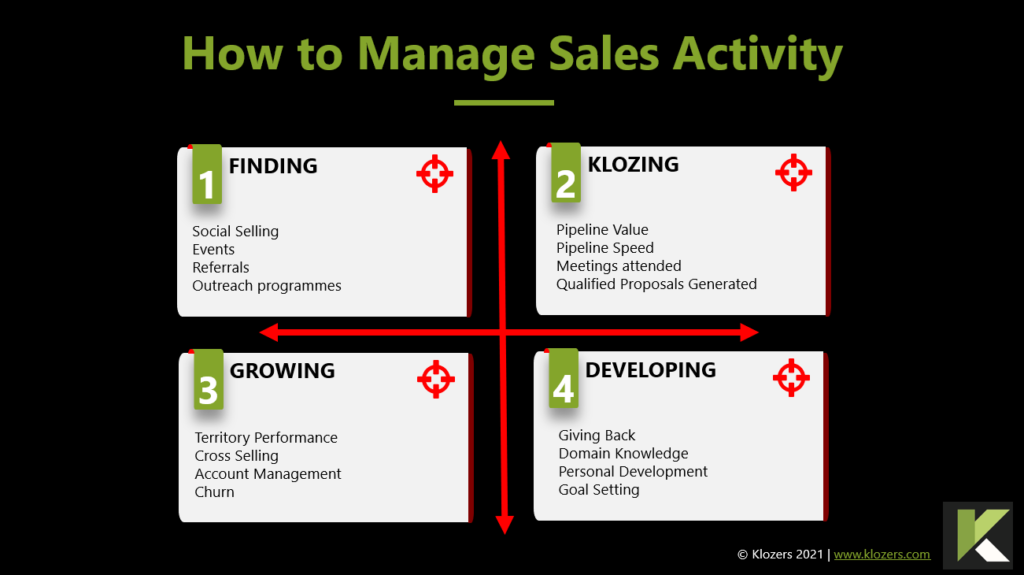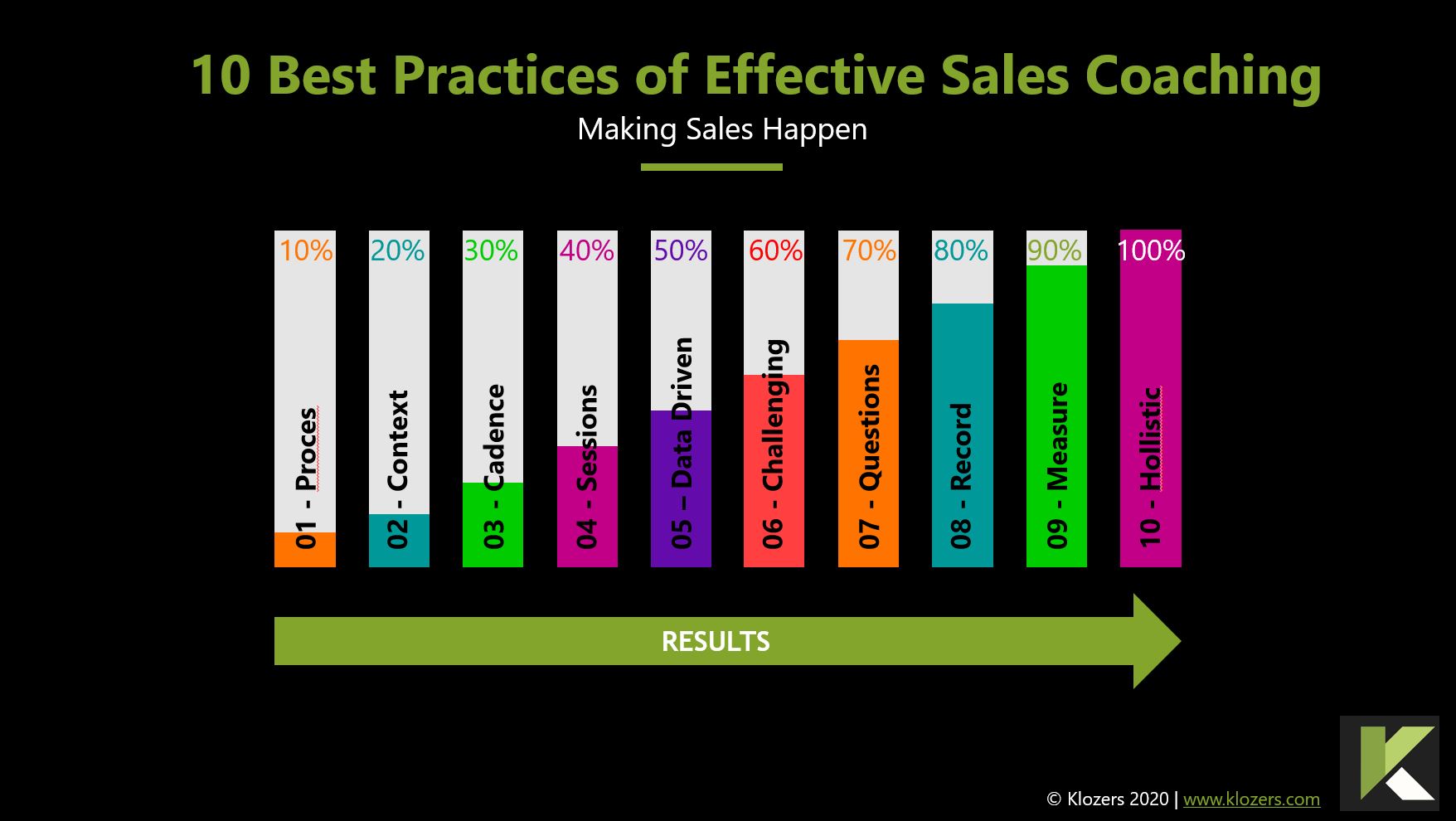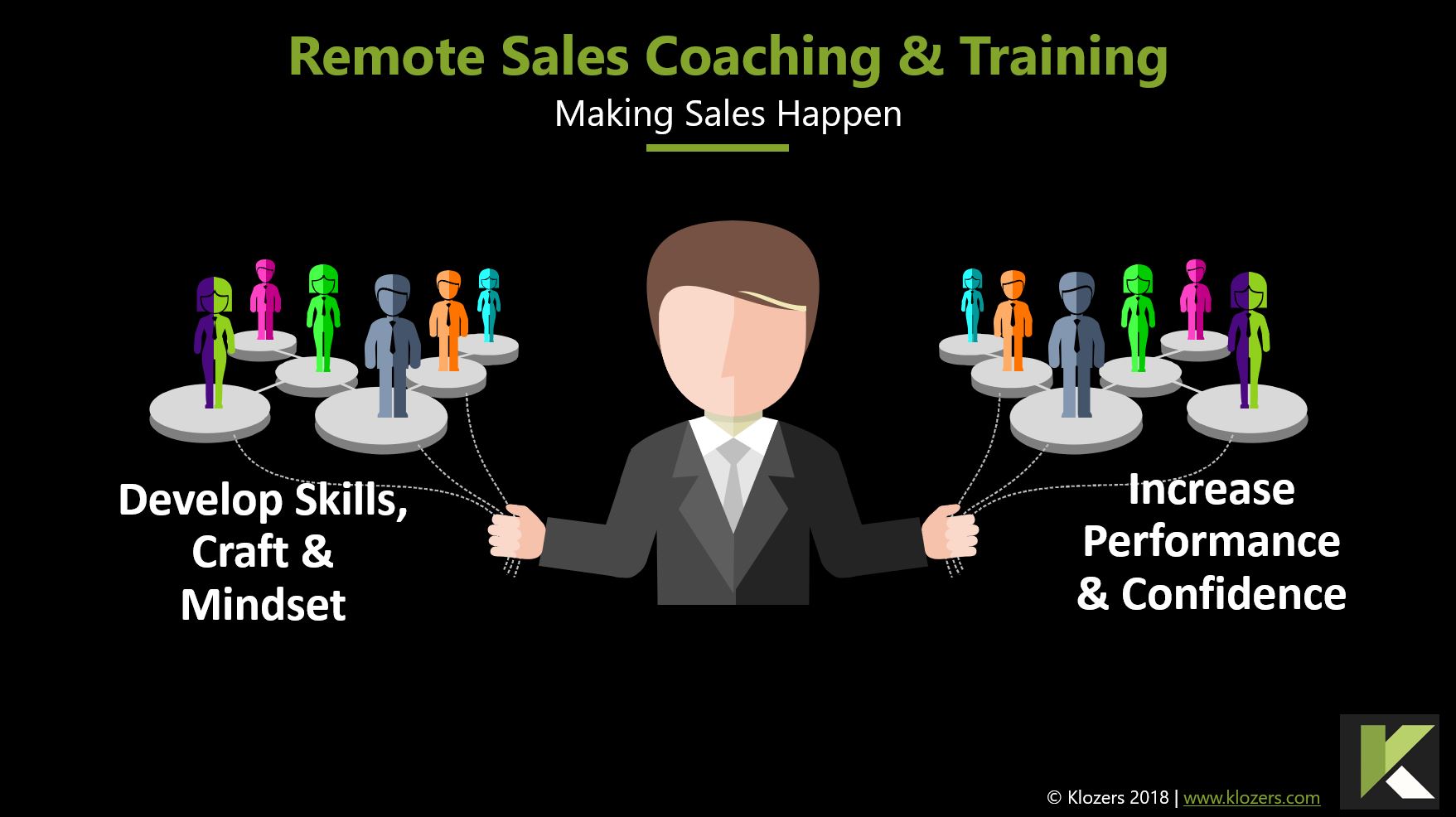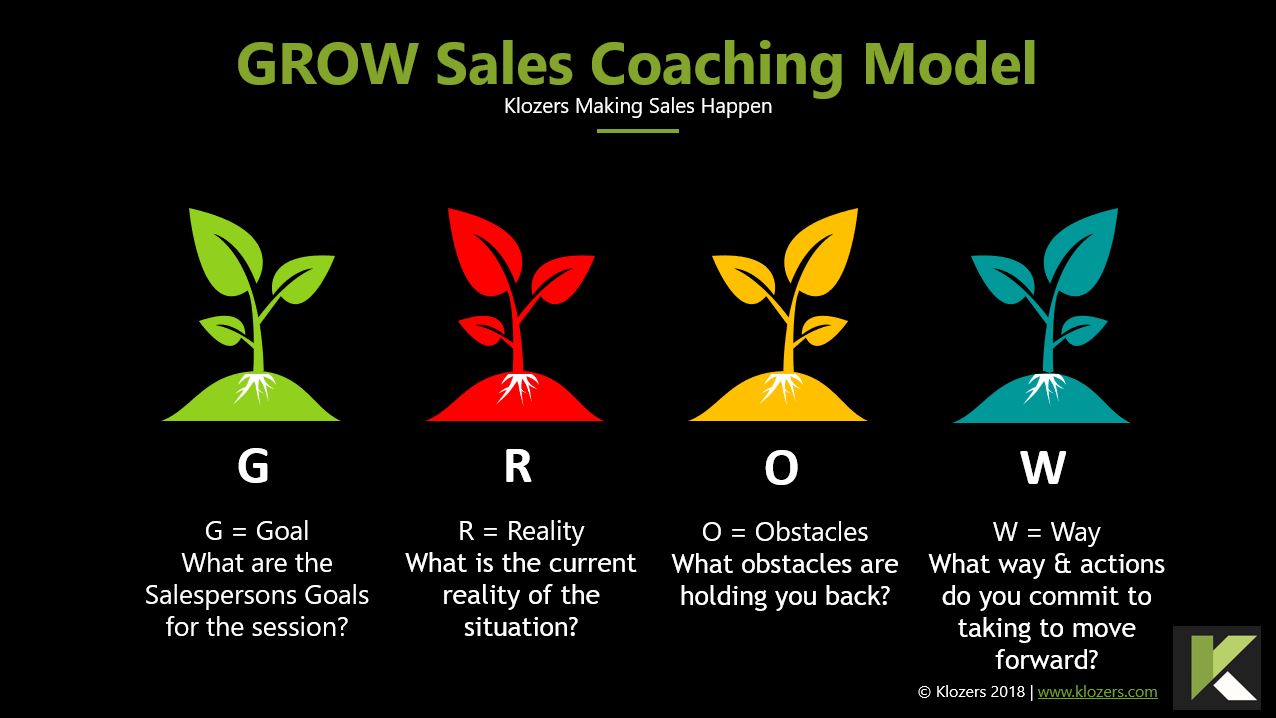Ontketen je verkooppotentieel | Huur een verkoopcoach in
Sales Coach - Top Vraag van Google
Wat is een verkoopcoach?
Een verkoopcoach is een professional die verkoopprofessionals helpt bij het ontwikkelen van hun vaardigheden en kennis, met als doel hun verkoopprestaties te verbeteren. Verkoopcoaches kunnen werken met individuen of kleine groepen verkopers en kunnen verschillende technieken gebruiken, zoals één-op-één coaching, rollenspellen en interactieve activiteiten om verkoopprofessionals te helpen de vaardigheden en kennis te ontwikkelen die ze nodig hebben om succesvol te zijn.
Salescoaches kunnen zich richten op verschillende onderwerpen, waaronder verkoopstrategie, verkooptechnieken, relatiebeheer, communicatievaardigheden en probleemoplossing. Ze kunnen ook samenwerken met verkoopleiders, verkoopmanagers en verkoopprofessionals om persoonlijke of professionele uitdagingen te identificeren en te overwinnen die hun verkoopprestaties kunnen belemmeren.
Sales coaches zijn meestal zelf ervaren sales professionals met een bewezen staat van dienst en kunnen een achtergrond hebben in sales management of training. Ze kunnen werken met verkoopprofessionals op alle niveaus, van starters tot ervaren verkoopmanagers en verkoopleiders.
In het algemeen kan een verkoopcoach een waardevolle bron zijn voor verkoopprofessionals die hun vaardigheden willen verbeteren en hun verkoopprestaties willen verhogen.
In dit artikel zullen we behandelen...
Er is een nieuwe manier om omzetgroei te realiseren...
Koop geen verkooptraining voordat je deze video hebt bekeken…
1. Wat zijn de voordelen van verkoopcoaching?
Verkoopcoaching kan een reeks voordelen bieden aan verkoopprofessionals, verkoopmanagers en organisaties als geheel, waaronder:
a) Verbeterde verkoopprestaties: Door verkoopprofessionals te helpen hun vaardigheden en kennis te ontwikkelen, kan verkoopcoaching hun verkoopprestaties helpen verbeteren. Dit kan onder andere hogere verkoopopbrengsten, hogere conversiepercentages en een betere klanttevredenheid zijn.
b) Meer zelfvertrouwen en motivatie: Verkoopcoaching kan ervoor zorgen dat verkoopprofessionals zich zelfverzekerder en gemotiveerder voelen in hun rol, wat kan leiden tot betere prestaties.
c) Persoonlijke ontwikkeling: Verkoopcoaching is meestal persoonlijker dan verkooptraining, omdat het is afgestemd op de specifieke behoeften en doelen van het individu of de kleine groep. Dit kan het effectiever maken om verkoopprofessionals te helpen de vaardigheden en kennis te ontwikkelen die ze nodig hebben om succesvol te zijn.
d) Grotere verantwoordelijkheid: Verkoopcoaching omvat vaak het stellen van specifieke doelen en het bijhouden van de voortgang, wat verkoopprofessionals kan helpen verantwoordelijk en gemotiveerd te blijven om hun doelen te bereiken.
e) Verbeterde teamcultuur: Salescoaching kan bijdragen aan een positieve en ondersteunende teamcultuur, wat kan leiden tot betere samenwerking en teamwerk.
In het algemeen kan verkoopcoaching een waardevolle bron zijn voor verkoopprofessionals en organisaties die hun verkoopprestaties willen verbeteren en succes op lange termijn willen behalen.
2. De businesscase voor verkoopcoaching
Hier zijn enkele statistieken die de behoefte aan verkoopcoaching ondersteunen:
a) Bedrijven die investeren in verkoopcoaching zien een gemiddelde omzetstijging van 8,9%: Volgens onderzoek van de Corporate Executive Board zien bedrijven die investeren in sales coaching een gemiddelde omzetstijging van 8,9% binnen het eerste jaar.
b) Verkopers die coaching krijgen, hebben meer kans om hun targets te halen: Uit onderzoek van de Sales Executive Council is gebleken dat verkopers die coaching krijgen 63% meer kans hebben om hun targets te halen dan verkopers die geen coaching krijgen.
c) Coaching leidt tot een hogere productiviteit: Uit een onderzoek van de International Coach Federation blijkt dat coaching leidt tot een productiviteitsverhoging van 86%.
d) Coaching leidt tot een betere retentie van werknemers: Volgens onderzoek van de Corporate Executive Board hebben bedrijven met hoogwaardige coachingprogramma’s een 7% lager personeelsverloop dan bedrijven zonder coachingprogramma.
e) Coaching leidt tot meer klanttevredenheid: Uit een onderzoek van de Corporate Executive Board blijkt dat bedrijven met hoogwaardige coachingprogramma’s een 13,5% hogere klanttevredenheid hebben dan bedrijven zonder coachingprogramma.
Deze statistieken tonen de significante impact aan die verkoopcoaching kan hebben op verkoopprestaties, productiviteit, personeelsbehoud en klanttevredenheid.

3. Individuele verkoopcoaching vs. verkoopcoaching in groepsverband
Individuele verkoopcoaching houdt in dat je één-op-één werkt met één verkoopprofessional om hen te helpen specifieke vaardigheden en kennis te ontwikkelen. Dit type coaching is meestal persoonlijker en afgestemd op de specifieke behoeften en doelen van het individu.
Individuele coaching kan persoonlijk of virtueel plaatsvinden en kan betrekking hebben op uiteenlopende onderwerpen zoals verkoopstrategie, bedrijfsontwikkeling en verkoopgesprekken. Een effectieve sales coach geeft ook één-op-één sessies over technieken, verkoopcyclus, het controleren van verkoopgesprekken, rollenspellen, interactieve activiteiten en feedbacksessies. Het is de taak van een verkoopcoach om vertrouwen op te bouwen en verkopers aan te moedigen om na te denken over hun eigen verkoopprestaties.
Het is niet de rol van de verkoopcoach om vertegenwoordigers te motiveren. Topverkopers worden niet alleen gemotiveerd door omzetdoelstellingen en meer verkoop, maar ook door hun eigen professionele ontwikkeling.
Groepscoaching daarentegen houdt in dat je met een kleine groep verkoopprofessionals werkt om hen te helpen hun vaardigheden en kennis te ontwikkelen. Groepscoaching kan persoonlijk of virtueel worden uitgevoerd en kan verschillende technieken omvatten, zoals groepsdiscussies, interactieve activiteiten en rollenspellen.
Groepscoaching kan een effectieve manier zijn om verkoopprofessionals te helpen van elkaar te leren en best practices uit te wisselen. Een effectieve verkoopcoach kan teamvergaderingen bijwonen, wekelijkse verkoopvergaderingen ondersteunen en prestatieverbetering binnen het verkoopteam stimuleren.
In het algemeen kunnen zowel individuele als groepscoaching effectieve benaderingen zijn voor verkoopontwikkeling. De meest geschikte benadering hangt af van de specifieke behoeften en doelen van het verkoopteam of individu, evenals de middelen en tijd die beschikbaar zijn voor ontwikkeling.
4. Hoe creëer ik een verkoopcoachingsprogramma
Het maken van een sales coaching programma kan een complex proces zijn dat zorgvuldige planning en aandacht voor detail vereist. Hier volgen enkele stappen die je kunt overwegen bij het maken van een effectief verkoopcoachingsprogramma:
a) Bepaal je doelen: Bepaal duidelijk je doelen voor het coachingprogramma. Wat wil je bereiken? Welke specifieke vaardigheden of kennis wil je in je verkoopteam ontwikkelen? Als je duidelijke doelen hebt, kun je een programma ontwerpen dat aan je behoeften voldoet en dat je helpt je doelen te bereiken.
b) Identificeer je doelgroep: Bepaal voor wie je coachingsprogramma bedoeld is. Is het voor je hele verkoopteam of alleen voor een specifieke groep? Als je je doelgroep begrijpt, kun je het programma beter afstemmen op hun specifieke behoeften en doelen.
c) Bepaal de indeling: Bepaal de indeling van je coachingprogramma. Is het persoonlijk, virtueel of een combinatie van beide? Houd bij het kiezen van een formaat rekening met factoren zoals gemak, kosten en de voorkeuren van je doelgroep.
d) Selecteer een coach: Kies een coach die de ervaring en expertise heeft om aan je behoeften te voldoen. Houd bij het kiezen van een coach rekening met factoren zoals hun achtergrond, hun coachingstijl en hun beschikbaarheid.
e) Maak een schema: Bepaal de frequentie en duur van je coachingsessies. Wekelijks, tweewekelijks of maandelijks? Hoe lang duurt elke sessie? Houd bij het maken van een schema rekening met de roosters van je deelnemers en de doelen van je programma.
f) Plan de inhoud: Ontwerp de inhoud van je coachingprogramma om te voldoen aan je specifieke doelen en de behoeften van je doelpubliek. Dit kunnen onderwerpen zijn als verkooptechnieken en relatiebeheer.
5. Hoe coach je een verkoper?
Het coachen van een verkoper kan een lonende en uitdagende ervaring zijn, omdat het sterke communicatieve vaardigheden vereist, een diepgaand begrip van verkooptechnieken en het vermogen om zich aan te passen aan de individuele behoeften en doelen van de verkoper. Hier zijn enkele stappen om te overwegen bij het coachen van een verkoper:
a) Een vertrouwens- en respectvolle relatie opbouwen: Het opbouwen van vertrouwen en respect is essentieel voor elke coachingsrelatie. Dit kan betekenen dat je duidelijke verwachtingen schept, open en eerlijk bent met feedback en oprechte interesse toont in de ontwikkeling van de verkoper.
b) Identificeer de sterke punten en verbeterpunten van de verkoper: Het beoordelen van de sterke punten en verbeterpunten van de verkoper kan je helpen om je coaching af te stemmen op zijn specifieke behoeften en doelen. Dit kan inhouden dat je hun verkoopinteracties observeert, hun prestatiegegevens bekijkt en feedback vraagt aan de verkoper en hun collega’s.
c) Stel specifieke, meetbare doelen: Het stellen van specifieke, meetbare doelen kan de verkoper helpen om gefocust en gemotiveerd te blijven en kan een routekaart zijn voor zijn ontwikkeling. Overweeg om zowel korte- als langetermijndoelen te stellen en zorg ervoor dat je de voortgang regelmatig bijhoudt.
d) Zorg voor voortdurende ondersteuning en feedback: Bied voortdurende ondersteuning en feedback om de verkoper te helpen zijn vaardigheden en kennis te ontwikkelen. Dit kan bestaan uit één-op-één coachingsessies, rollenspellen of andere interactieve activiteiten waarmee de verkoper kan oefenen en toepassen wat hij of zij heeft geleerd.
e) Moedig zelfreflectie en voortdurend leren aan: Moedig de verkoper aan om na te denken over zijn prestaties en mogelijkheden te zoeken om voortdurend te leren. Dit kan betekenen dat ze worden aangemoedigd om publicaties uit de sector te lezen, trainingen bij te wonen.

6. Wat zijn de beste sales coaching technieken?
Er zijn veel verschillende verkoopcoachingstechnieken die effectief kunnen zijn om verkopers te helpen hun vaardigheden en kennis te ontwikkelen. Hier zijn een paar voorbeelden:
a) Eén-op-één coaching: Eén-op-één coaching houdt in dat je één-op-één samenwerkt met een salesprofessional om hem te helpen specifieke vaardigheden en kennis te ontwikkelen. Dit type coaching is meestal persoonlijker en afgestemd op de specifieke behoeften en doelen van het individu.
b) Rollenspel: Rollenspel omvat het simuleren van echte verkoopsituaties en stelt de verkoper in staat om te oefenen en toe te passen wat hij of zij heeft geleerd. Dit kan een nuttige techniek zijn om verkoopprofessionals te helpen hun communicatie- en probleemoplossingsvaardigheden te ontwikkelen.
c) Interactieve activiteiten: Interactieve activiteiten, zoals casestudies of simulaties, kunnen een nuttige manier zijn om verkopers te betrekken en hen te helpen hun kennis toe te passen op situaties uit de praktijk.
d) Groepscoaching: Groepscoaching houdt in dat je met een kleine groep verkoopprofessionals werkt om hen te helpen hun vaardigheden en kennis te ontwikkelen. Groepscoaching kan bestaan uit groepsdiscussies, interactieve activiteiten en rollenspellen, en kan een effectieve manier zijn om verkoopprofessionals te helpen van elkaar te leren en best practices uit te wisselen.
e) Feedbacksessies: Voortdurende feedback kan een waardevolle techniek zijn om verkopers te helpen hun prestaties te verbeteren. Feedbacksessies moeten op een constructieve en ondersteunende manier worden uitgevoerd en moeten gericht zijn op specifieke verbeterpunten.
In het algemeen hangen de beste verkoopcoachingstechnieken af van de specifieke behoeften en doelen van het verkoopteam of individu, en van de middelen en tijd die beschikbaar zijn voor ontwikkeling.
7. Voorbeelden van verkoopcoaching vragen
Er zijn veel verschillende verkoopcoachingvragen die effectief kunnen zijn om verkopers te helpen hun vaardigheden en kennis te ontwikkelen. Hier zijn een paar voorbeelden:
-
Wat zijn je specifieke doelen voor deze coachingsessie?
-
Wat zijn uw huidige uitdagingen in het verkoopproces?
-
Waar heb je vertrouwen in bij je verkoopaanpak?
-
Wat zijn jouw verbeterpunten in je verkoopaanpak?
-
Hoe ga je momenteel om met bezwaren van prospects?
-
Hoe bouw je momenteel relaties op met prospects en klanten?
-
Hoe volg je momenteel prospects en klanten op?
-
Hoe meet je momenteel je verkoopprestaties?
-
Wat zijn enkele best practices of strategieën die in het verleden goed voor je hebben gewerkt?
-
Welke middelen of ondersteuning heb je nodig om je doelen te bereiken?
Vragen voor verkoopcoaching moeten worden afgestemd op de specifieke behoeften en doelen van de verkoopprofessional of kleine groep, en moeten zo zijn ontworpen dat ze aanzetten tot nadenken, leren en actie. Door doordachte en gerichte vragen te stellen, kunnen verkoopcoaches verkoopprofessionals helpen bij het identificeren van gebieden die voor verbetering vatbaar zijn, bij het ontwikkelen van nieuwe strategieën en benaderingen en bij het bijhouden van hun vooruitgang in de richting van hun doelen.
8. Welke vaardigheden heeft een verkoopcoach nodig?
Een goede Sales coach heeft een aantal vaardigheden nodig om verkopers effectief te coachen, waaronder:
a) Verkoopexpertise: Coaches moeten een grondige kennis hebben van verkooptechnieken, klantenrelatiebeheer en het verkoopproces. Dit kan betekenen dat je een achtergrond hebt in sales management of training, of dat je uitgebreide ervaring hebt als sales professional.
b) Communicatievaardigheden: Coaches moeten sterke communicatieve vaardigheden hebben, waaronder het vermogen om actief te luisteren, verduidelijkende vragen te stellen en feedback te geven op een constructieve en ondersteunende manier.
c) Coachingsvaardigheden: Coaches moeten een goed begrip hebben van coachingsprincipes en -technieken, inclusief het stellen van doelen, het geven van feedback en het faciliteren van leren en ontwikkeling.
d) Aanpassingsvermogen: Coaches moeten zich kunnen aanpassen aan de specifieke behoeften en doelen van de verkopers met wie ze werken en aan veranderingen in de verkoopomgeving.
e) Empathie: Coaches moeten empathie en begrip kunnen tonen voor de uitdagingen en zorgen van de verkopers met wie ze werken, wat kan helpen bij het opbouwen van vertrouwen en een goede verstandhouding.
Door deze vaardigheden te ontwikkelen, kunnen coaches effectiever worden in het helpen van verkoopprofessionals bij het ontwikkelen van hun vaardigheden en kennis en het verbeteren van hun verkoopprestaties.
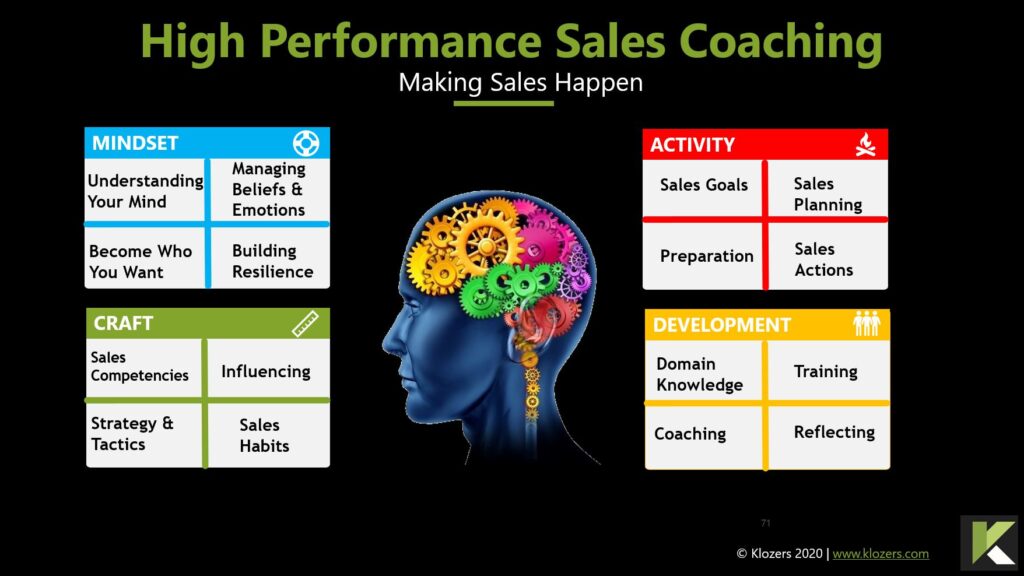
9. Heeft een salesmanager een salescoach nodig?
Salesmanagers kunnen net als salesprofessionals baat hebben bij sales coaching. Verkoopcoaching kan vooral waardevol zijn voor elke verkoopmanager, omdat zij vaak een grotere verantwoordelijkheid hebben voor het leiden en ontwikkelen van hun verkoopteams.
Verkoopcoaching kan een verkoopmanager helpen een reeks vaardigheden te ontwikkelen, waaronder:
-
Leiderschapsvaardigheden: Verkoopcoaching kan verkoopmanagers helpen bij het ontwikkelen van hun leiderschapsvaardigheden, zoals communicatie, delegeren en teambuilding.
-
Verkooptechnieken: Verkoopmanagers kunnen profiteren van verkoopcoaching om op de hoogte te blijven van de nieuwste verkooptechnieken en beste praktijken.
-
Coachingsvaardigheden: Salesmanagers die verantwoordelijk zijn voor het coachen van hun teamleden kunnen baat hebben bij sales coaching om hen te helpen hun coachingsvaardigheden en -technieken te ontwikkelen.
-
Problemen oplossen: Salesmanagers worden vaak geconfronteerd met allerlei uitdagingen, zoals het beheren van moeilijke klanten of het navigeren door complexe verkoopomgevingen. Verkoopcoaching kan hen helpen bij het ontwikkelen van probleemoplossende vaardigheden en strategieën om deze uitdagingen aan te gaan.
In het algemeen kan verkoopcoaching een waardevolle bron van informatie zijn voor elke verkoopmanager die zijn vaardigheden en kennis wil ontwikkelen en zowel zijn eigen prestaties als die van zijn vertegenwoordigers wil verbeteren.
10. Welke rol moet verkoopleiderschap spelen in verkoopcoaching?
Sales leadership speelt een cruciale rol bij coaching, omdat zij verantwoordelijk zijn voor het zetten van de toon en de richting voor de ontwikkeling van het team. Hier zijn een paar manieren waarop verkoopleiding coaching binnen hun organisatie kan ondersteunen:
-
Een coachingcultuur creëren: Het verkoopleiderschap kan helpen bij het creëren van een coachingcultuur door het belang van continu leren en ontwikkelen te benadrukken en door middelen en ondersteuning te bieden voor coachinginspanningen.
-
Stel duidelijke doelen en verwachtingen: Sales leadership moet duidelijke doelen en verwachtingen voor sales coaching communiceren, en ervoor zorgen dat de coachinginspanningen zijn afgestemd op de algemene doelen en doelstellingen van de organisatie.
-
Zorg voor middelen en ondersteuning: De verkoopleiding moet de nodige middelen en ondersteuning bieden om effectieve coaching mogelijk te maken, zoals trainingsmateriaal, coachingtools en speciale coachingtijd.
-
Zelfreflectie en continu leren aanmoedigen: Sales leadership kan verkoopprofessionals aanmoedigen om aan zelfreflectie en continu leren te doen door tijd vrij te maken voor coaching, toegang te bieden tot hulpmiddelen en training, en de inspanningen van degenen die aan coaching doen te erkennen en te belonen.
-
Model coachingsgedrag: Het verkoopleiderschap moet model staan voor coachend gedrag door te laten zien dat het zich inzet voor voortdurende scholing en ontwikkeling, en door ondersteunende en constructieve feedback te geven aan verkoopprofessionals.
In het algemeen speelt verkoopleiderschap een cruciale rol bij het creëren van een cultuur van coaching en het ondersteunen van de ontwikkeling van verkoopprofessionals binnen de organisatie.
11. Wat is het verschil tussen verkoopcoaching en verkooptraining?
Verkoopcoaching en verkooptraining zijn twee verschillende benaderingen van verkoopontwikkeling die kunnen worden gebruikt om verkopers te helpen hun vaardigheden en kennis te verbeteren.
Verkooptraining is een gestructureerd programma dat is ontworpen om verkopers te helpen specifieke vaardigheden en kennis te ontwikkelen. Er kunnen verschillende methoden worden gebruikt, zoals lezingen, interactieve activiteiten en simulaties, en het kan persoonlijk of virtueel worden gegeven. Verkooptraining is meestal algemener van aard en is erop gericht om verkopers een breed scala aan vaardigheden en kennis bij te brengen die ze in uiteenlopende situaties kunnen toepassen.
Verkoopcoaching daarentegen is een meer persoonlijke aanpak die is afgestemd op de specifieke behoeften en doelen van de verkoopprofessional of kleine groep. Verkoopcoaching kan bestaan uit één-op-één sessies met een coach, rollenspellen en interactieve activiteiten en is meestal meer gericht op het helpen van verkoopprofessionals om het geleerde toe te passen op specifieke uitdagingen of situaties. Verkoopcoaching kan ook inhouden dat er specifieke doelen worden gesteld en dat de voortgang wordt bijgehouden, zodat verkopers gemotiveerd en verantwoordelijk blijven.
Over het algemeen is het belangrijkste verschil tussen verkoopcoaching en verkooptraining de mate van personalisatie en de focus op specifieke doelen en uitdagingen. Beide benaderingen kunnen waardevolle hulpmiddelen zijn voor verkoopprofessionals die hun vaardigheden en kennis willen verbeteren. De meest geschikte benadering hangt af van de specifieke behoeften en doelen van het verkoopteam of individu, evenals de middelen en tijd die beschikbaar zijn voor ontwikkeling.
12. Heb ik een verkoopachtergrond nodig om verkoopcoach te worden?
Een achtergrond in verkoop kan voordelig zijn voor verkoopcoaches, omdat het je een diepgaand inzicht kan geven in verkooptechnieken, klantenrelatiebeheer en het verkoopproces. Het is echter niet noodzakelijk een vereiste voor succesvolle verkoopcoaching.
Salescoaches kunnen verschillende achtergronden hebben en expertise op het gebied van leiderschap, bedrijfsontwikkeling, communicatie en coachingstechnieken. Het belangrijkste voor een sales coach is het vermogen om de behoeften en doelen te begrijpen van de sales professionals met wie ze werken, en om ondersteuning en begeleiding te bieden om hen te helpen hun vaardigheden en kennis te ontwikkelen.
Hoewel een achtergrond in verkoop gunstig kan zijn voor coaches, is het niet de enige factor die hun effectiviteit bepaalt. De belangrijkste kwaliteiten voor een verkoopcoach zijn het vermogen om de behoeften en doelen van hun klanten te begrijpen en hen te ondersteunen en begeleiden om succes te behalen.
“Een fantastische leerervaring”
Amanda – Account Manager






